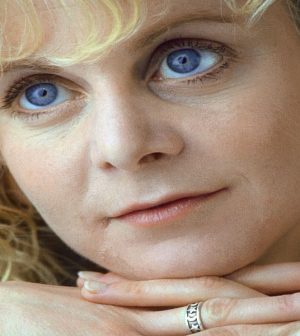- Could Your Grocery Store Meat Be Causing Recurring UTIs?
- Are You Making This Expensive Thermostat Error This Winter?
- Recognizing the Signs of Hypothyroidism
- 10 Strategies to Overcome Insomnia
- Could Artificial Sweeteners Be Aging the Brain Faster?
- Techniques for Soothing Your Nervous System
- Does the Water in Your House Smell Funny? Here’s Why
- Can a Daily Dose of Apple Cider Vinegar Actually Aid Weight Loss?
- 6 Health Beverages That Can Actually Spike Your Blood Sugar
- Treatment Options for Social Anxiety Disorder
You Can Probably Credit Your Genes for These Facial Features

How likely is your baby to have Mom’s button nose or Dad’s chiseled cheeks?
New research suggests the odds are good.
Based on a study of nearly 1,000 twin girls in the United Kingdom, researchers say they’ve pinpointed the facial features most influenced by a person’s genes.
The finding: Genetics play a big part in the shapes of the end of the nose, the area above and below the lips, cheekbones and the inner corner of the eyes.
The King’s College London study was published April 19 in the journal Scientific Reports.
“The notion that our genes control our face is self-evident,” lead researcher Giovanni Montana said in a college news release. “However, quantifying precisely which parts of the face are strongly heritable has been challenging so far.”
Using 3D models, his team created what Montana described as “face heritability maps.”
“These maps will help identify specific genes shaping up the human face, which may also be involved in diseases altering the face morphology,” he explained. Montana is a professor in the department of biomedical engineering.
Tim Spector, director of the TwinsUK study at the college, said the research explains how we see twins who don’t look exactly like.
It “shows us that even identical twins can vary quite a lot on facial features, but because of the key areas being genetically controlled, we perceive them as being ‘identical,’ ” he said in the news release.
More information
Learn more about genetics at the American Society of Human Genetics.
Source: HealthDay
Copyright © 2026 HealthDay. All rights reserved.










